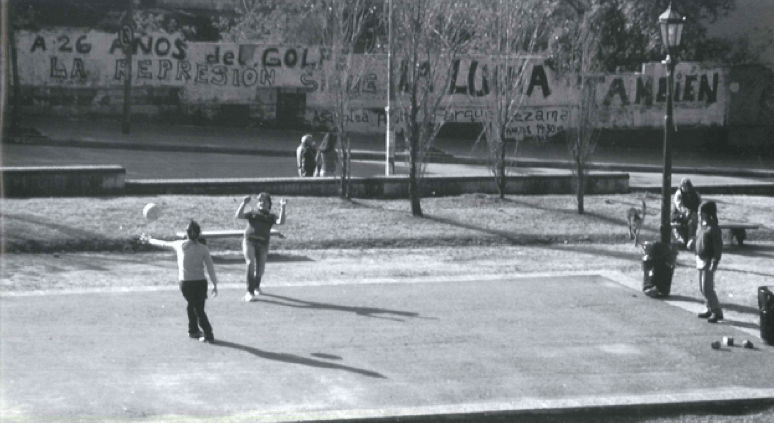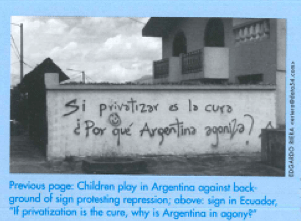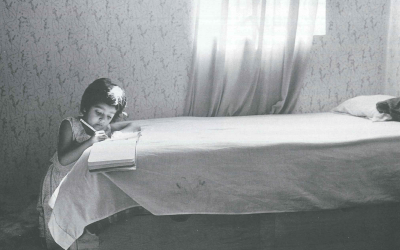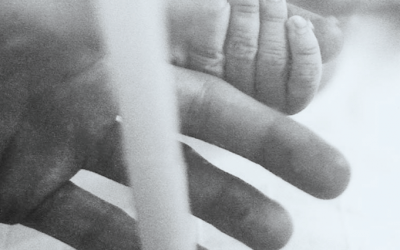Strengthening Democracy: A Look at the International Environment

The creation, consolidation, and improvement of democratic institutions do not happen automatically. Democracy (however it is defined) requires both favorable conditions and a certain amount of luck. Latin America has often lacked both.
Experts usually write about the conditions that favor democracy in purely internal or domestic terms—good economic performance, the absence of sharp social conflicts, interest groups and sectoral coalitions willing to compromise, healthy party systems, well-designed constitutions, among others. Some prefer more tautological formulations—democracy flourishes where people, politicians, or the local culture cherish democratic values.
A different view was taken by the “dependency school” theorists of a generation ago. They argued that outside forces played a key role in shaping the development, including the political development, of less developed countries and regions. In many cases, they insisted, it had become impossible to disentangle domestic interests and pressures from external or international forces. Some of this work cited the U.S. role in encouraging military coups in Latin America in the 1960s and 1970s.
Globalization struck just as the dependency school arguments were getting buried under a mountain of sophisticated monographs on the mainly domestic determinants of political outcomes in Latin America. Maybe it’s time to take another look. Latin American democracies are now facing grave challenges. If there is any way that external conditions could be improved or external actors moved to provide more support for democratic institutions in the region, it’s hard to imagine a better time than now.
Support for democracy in Latin America is eroding mainly because economic growth for the past two decades has been negligible in most countries. Like voters everywhere, Latin American voters reward good economic results and punish politicians and parties that fail to achieve them with stunning consistency. The only exceptions to this rule that I have found occurred either when bad economic news came after the balloting (such as Venezuela in 1988 and Mexico in 1982 and 1994) or when voters preferred a change of regime and the opposition embraced the successful economic policies of the incumbents (Chile 1990, Mexico 2000).
Since economic performance has been so poor for the past two decades, voters have been throwing out incumbent politicians and parties in record numbers. New parties and fresh faces have pushed aside traditional organizations and their leaders in response to demands for change. In five countries—Argentina, Ecuador, Paraguay, Peru, and Venezuela—elected presidents have been forced from office in large part because of poor economic policies or results (though the Venezuela coup was reversed) in recent years. In many countries, more and more citizens have become embittered and disillusioned with all politicians and politics. This rising backlash effect has reduced support not only for democracy but also for the market-oriented reforms of the 1990s.
As the world economy struggles to recover from the U.S. recession, short-term prospects for a demand-driven boom in Latin America’s exports are dim. On the supply side, prospects for renewed growth fueled by technological change or investment in infrastructure have been dealt harsh blows by the volatility of external capital flows to most countries. The Asian and Russian shocks in the late 1990s, the Argentine collapse in late 2001, and the sharp fall in stock values over the past two years have made banks, fund managers, and investors in the developed countries as cautious as they were once exuberant.
Voters wanted more growth, more jobs, and less social and regional inequality. The government’s candidate, José Serra, barely made it to the second round in the October 2002 election. Because of the country’s economic difficulties, many voters turned to the center-left alternatives Luiz Inacio da Silva (“Lula”) and Ciro Gomes. Both of these opposition candidates emphasized equity issues in their campaigns and both criticized “neo-liberalism,” but neither posed any threat to Brazil’s basic economic strategy and stability. Despite their moderation, however, foreign investment slowed significantly and Brazil required support from the United States and the International Monetary Fund to avoid an exchange rate and external payments crisis. Lula’s victory in the second round was overshadowed by new worries about potential external shocks.
Because the external economic environment is not likely to be helpful in short term, democracy in Latin America also needs the support of major international institutions and actors. The good news is that democracy clauses in international agreements and charters have become increasingly common over the past two decades. This means, for example, that governments that violate democratic norms risk the benefits that come from foreign aid programs, trade agreements, development loans, and membership in a growing list of key international and inter-American organizations. Under Secretary General César Gaviria, the Organization of American States has become especially active in supporting democratic institutions and averting coups.
The bad news is that some key international actors, the United States in particular, see democracy in Latin America as an eminently desirable goal, but it is not the only or even necessarily the most important policy objective in the region. During the Cold War, the United States actively sought or declined to oppose the overthrow of numerous elected governments that failed to conform to U.S. policy or ideological preferences. After the end of the Cold War, the United States changed gears. It signed peace agreements in Central America and largely stepped back from close monitoring and involvement in Latin American politics. The United States also backed OAS efforts to support democracy and avoid a return to authoritarian rule in Ecuador, Guatemala, Paraguay, and Peru in the 1990s. This post-Cold War approach now appears to be ending.
The new war on terrorism, the old war on drug trafficking, the renewed commitment to the embargo on Cuba, and a number of other diplomatic and economic priorities are now competing with the U.S. goal of strengthening democracy in Latin America. The U.S. government decided in early 2002 to do away with restrictions on aid to Colombia, imposed on human rights grounds, that had limited military aid to anti-drug efforts. U.S. ambassadors in Nicaragua and Bolivia abandoned their diplomatic portfolios to back presidential candidates in recent elections. And U.S. policy makers reacted ambivalently to the short-lived coup against President Hugo Chávez in Venezuela.
To complete the destructive symmetry of this renewed meddling, the Bush administration coupled it with explicit and calculated indifference to the growing economic and financial difficulties in several Latin American countries, most notably Argentina. Fortunately, the U.S. government reversed itself in time to avert threatened crises in Uruguay and Brazil, for a time at least.

Despite unfavorable economic trends and the drift toward meddlesome incoherence in U.S. policy, there are some grounds for optimism. Domestically, a large majority of Latin Americans support democratic institutions and want them strengthened. Latin American military establishments have declined in size, given up their self-defined and U.S.-assisted role as guardians of inter-American political purity, and suffered a sharp fall in their capacity to seize and hold power. Internationally, the instantaneous, unqualified, and virtually unanimous response of Latin American governments (along with the European Union) to the coup in Venezuela suggests that future coups will risk isolating coup makers from neighboring countries and much of the developed world, if not always from Washington.
In the long run, strengthening democracy in Latin America will require better international (and especially inter-American) economic and political institutions. Better economic institutions are needed to reduce the volatility of capital flows, dampen exchange rate fluctuations, and maximize investor confidence. The hemisphere needs not only a free trade treaty, but also institutional mechanisms that coordinate macroeconomic policymaking, reduce exchange-rate and other risks, and facilitate economic integration and development. Latin America democracy would also benefit from new diplomatic and security arrangements that unambiguously elevate the defense and consolidation of democratic institutions above all other policy goals for all the countries of the hemisphere, including the United States.
Fall 2002
John H. Coatsworth is the director of the David Rockefeller Center for Latin American Studies and Monroe Gutman Professor of Latin American Affairs at Harvard University.
Related Articles
Editor’s Letter: Democracy
Ellen Schneider’s description of Sandinista leader Daniel Ortega in her provocative article on Nicaraguan democracy sent me scurrying to my oversized scrapbooks of newspaper articles. I wanted to show her that rather than being perceived as a caudillo
Battro Named to Pontifical Academy
Antonio M. Battro M.D., Ph.D. has been named to The Pontifical Academy of Sciences, the oldest science academy in the world, established by Galileo 400 years ago. Battro, Robert F. Kennedy…
Entre los panales y el poder
Cuando Jacqueline van Rysselberghe fue informada en Noviembre último que ella debería dejar su puesto como alcaldesa de Concepción, una de las ciudades mas grandes e…




